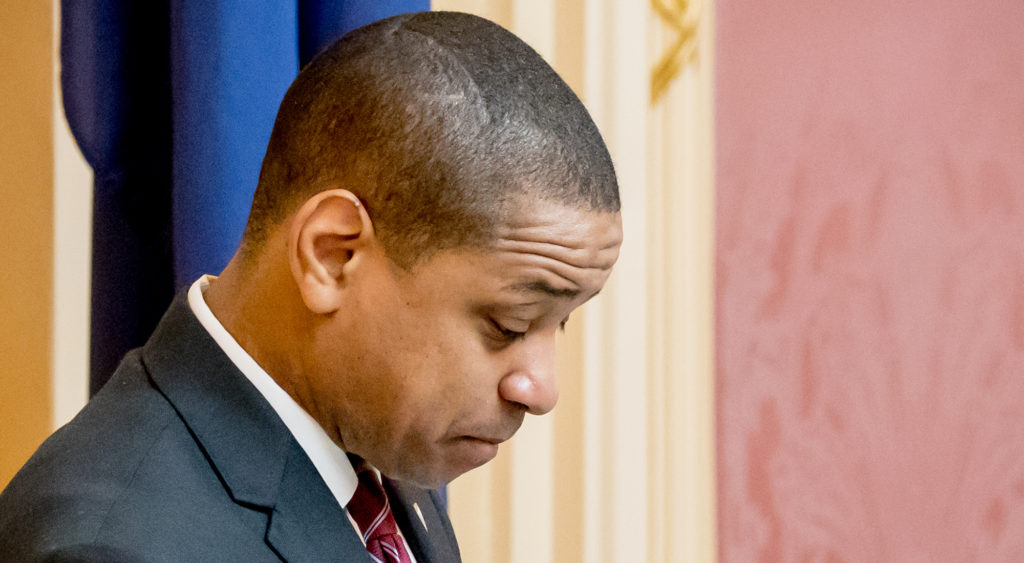On Friday, Lieutenant Governor Justin Fairfax faced a second accusation of sexual misconduct, dating back to his time as an undergraduate student at Duke University. The accuser, a fellow student, claimed Fairfax raped her in 2000, issuing a statement through her attorneys charactering the alleged attack as “premeditated and aggressive.”
The rape allegedly took place at at the Alpha Phi Alpha fraternity house, reported the New York Times. During his time at Duke, Fairfax served as the chapter president of Alpha Phi Alpha, according to the school’s campus newspaper, The Chronicle.
Fairfax denied the allegation in a statement, refusing to resign, saying in a statement that a “vicious and coordinated smear campaign is being orchestrated against me.”
Fairfax currently serves on Duke University’s Board of Visitors. On Friday, the university called on him to resign.
During his time at Duke, the school’s fraternity system came under controversy for a culture of binge drinking, which campus leaders said contributed to problems and at least one alcohol related death.
“Alcohol has come to the forefront of campus conversation in the last several weeks because of the disclosure of a student’s alcohol-related death and the beginning of investigations into several organizations for excessive drinking,” reported Duke’s student newspaper, The Chronicle, on February 25, 2000.
Fairfax said the university’s greek system was not to blame.
“Young Trustee-elect Justin Fairfax, a Trinity senior, urged the audience to not think of binge drinking as a greek issue,” reported The Chronicle.
As one of the school’s three young trustees, he told a forum held to discuss the issue, saying that, “No amount of University regulations and rules are going to change [the drinking scene].”
Fairfax himself was part of fraternity culture at Duke, serving as president of the Alpha Phi Alpha chapter where the assault allegedly occurred.
In 1999, one year before the alleged attack, the university’s annual review committee filed a motion to dissolve the Alpha Phi Alpha chapter for persistent violations of policy.
“The committee which annually reviews and reaccredits selective houses has filed motions to dissolve three West Campus fraternities,” reported The Chronicle. “Alpha Phi Alpha Fraternity Inc., the Kappa Alpha Order, and Pi Kappa Alpha all wrote residential review reports graded unsatisfactory by the Annual Review Committee, chaired by Associate Dean of Residential Life Benjamin Ward.”
At the time, Fairfax defended the chapter and pledged to fix the deficiencies.
The trouble at Alpha Phi Alpha continued, leading to the chapter being suspended again in 2017.
Given the seriousness of the accusations against Fairfax, and the fraternity house as the locations of the alleged assault, his role in Alpha Phi Alpha during the years in question is likely to face renewed scrutiny and raises serious questions about what effect alcohol may have had in fueling sexual violence on campus.

